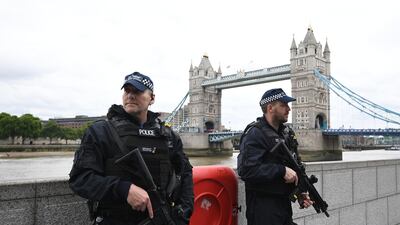A former Al Qaeda recruit, who is now a deradicalisation specialist, is leading calls among UK experts for the government to urgently tackle the funding crisis in dealing with terror suspects.
London Bridge terror attacker Usman Khan was not being effectively monitored following his early release from jail when he killed two Cambridge University graduates and injured three others at a prison rehabilitation event last Friday.
News of his atrocity led to reports of cheers from extremists on the wings of the UK’s jails.
It has raised urgent questions over the Home Office’s ability to effectively monitor extremists and the schemes run in prisons to rehabilitate them.
Khan is one of a number of extremists who have committed attacks across the UK despite being on the radar of the security services. He, along with the previous London Bridge attackers, has been linked to hate preacher Anjem Choudary.
On Tuesday, Hanif Qadir, who ran deradicalisation programme the Active Change Foundation, criticised the government for withdrawing vital funding for his programme.
He has claimed that his interventions could have stopped at least three of the UK’s recent terror attacks.
Mr Qadir, who has run counter-radicalisation programmes working with some of the country's most dangerous extremists for almost a decade, told The National his repeated warnings to the authorities have fallen on deaf ears.
“I have repeatedly raised concerns with the authorities to highlight the urgent need for these programmes,” he said.
“It is important that they realise mistakes have been made and address them.”
Mr Qadir has first hand experience of dealing with extremist after he was once wooed to join Al Qaeda in Afghanistan but after witnessing atrocities he returned to the UK and created a programme to protect vulnerable individuals from extremism.
He has criticised the lack of monitoring of Khan.
“It shouts out to me why was he allowed to travel alone from where he was to London unaccompanied. I have worked with many individuals and when you take them out you have certain protocols, like checking the venue and attendees.
"By their nature these individuals are devious and manipulative. They do not trust you so why given them the element of doubt and trust them. He should have been checked before he left the area and when he arrived,” he had earlier told BBC Radio Four.
Criminal barrister Paul Genney has had a long career involving counter-terrorism work.
He told The National: "The UK prisons have been underfunded for so long. Cuts to services have led to this. There needs to be a radical overhaul of the system with funds available to offer preventative measures in the prisons and have more monitoring following the release of dangerous suspects. It is the repeated shortfalls in resources and funding of the criminal justice system that has enabled this to happen.
“Khan slipped through the net due to the recent law changes, he should have still been in prison or at the very least be under close scrutiny.
Khan had been released from prison having served less than half his sentence after being convicted of a terror plot to blow up the London Stock exchange.
Following the incident, prime minister Boris Johnson immediately called for tougher sentencing and pinned Khan’s release on a Labour-era policy, even as the family of one of Friday’s victims, Jack Merritt, lambasted Mr Johnson for exploiting the 25-year-old’s death for political gain.
Khan’s original sentence under the UK’s controversial “Imprisonment for Public Protection” guidelines would have kept him incarcerated until a Parole Board was satisfied he posed no threat.
Thousands of low-level criminals were held under the same rules with little chance of release or rehabilitation. It led to the sentencing policy being declared illegal by the European Court of Human Rights in 2012 and changed by the Conservative government.
In 2013, an appeal court converted Khan’s sentence to a 16-year “extended sentence.” But under a 2008 Labour government policy meant to reduce prison overpopulation, offenders under extended jail terms were released automatically halfway through their sentences.
While that law was changed by the Conservatives in 2012 to require inmates to serve two-thirds of the sentence and to win Parole Board approval for release, Khan’s sentencing fell under the previous policy.


